Real estate still a haven for black money

The scope for legalising undisclosed income without facing any questions remains as the tax administration has not scrapped the provision of whitening black money in case of the purchase of flats and land, raising criticism.
The National Board of Revenue (NBR) on Sunday scrapped the provision of legalising undeclared income on payment of 15 percent tax on assets, including cash, securities, deposits, financial schemes and instruments.
The development came about amidst demands from various sections of the society to withdraw the amnesty offered by the Awami League government that was ousted in a mass uprising last month.
But the revenue administration did not cancel the amnesty to whiten black money in case of investment in real estate -- flats, buildings and land -- on payment of a specific amount of tax depending on the size and location of the properties.
Accordingly, it fixed Tk 15,000 per square metre as the maximum amount of tax for investment in land in Dhaka's Gulshan, Banani, Motijheel, Tejgaon, Dhanmondi and Shahbagh.
The specific tax for the purchase of flats and establishments is Tk 6,000 for each square metre.
The NBR officials said the tax administration cancelled the provision of legalising undisclosed cash, securities, and deposits on payment of 15 percent tax in line with the directive from high-ups of the interim government.
Iftekharuzzaman, executive director of Transparency International Bangladesh (TIB), said it was a welcome relief and seemed consistent with the key spirit of anti-discrimination in the vision of the "new Bangladesh".
"However, it will be extremely disappointing if at the operational level any loopholes are left, apparently deliberately, to keep the same provision for investment in any sector or sub-sector such as real estate," he said.
He said this would mean that discrimination would continue, as black money holders would be rewarded instead of being held to account.
It will also imply that by giving discriminatory advantages to illicit income earners, their monopolistic control of these sectors will be further entrenched and such sectors will become more prohibitive for honest earners, he said.
"In reality, it will be a corruption-encouraging decision, which the interim government cannot afford to allow," said the TIB executive director.
He also called for reviewing the matter in the true spirit of the anti-discrimination movement in general and corruption control in particular.
Snehasish Barua, managing director of SMAC Advisory Services Ltd, said, "If the intention was to cancel the scope of legalising undisclosed assets, then it should have been completely withdrawn rather than being offered a partial withdrawal."
"There is still scope for such voluntary disclosure for land and apartments under this scheme, meaning we are welcoming undisclosed assets in real estate with absolute amnesty provision," he added.
Barua said it might have been more appropriate to fully withdraw this scheme, considering the fact that the Income Tax Act 2023 already provides for the legalisation of investments in buildings and apartments, unless it is acquired through an illegal source of income through criminal activity.
The NBR gave the opportunity to taxpayers to legalise undisclosed assets without facing any questions about the sources of income for the two consecutive years from fiscal year 2020-21.
It also kept a provision that taxmen will consider the source of funds as explained if taxpayers pay a specific amount of tax in case of investment in flats depending on the size and location of the property.
The provision has been kept in effect for the current fiscal year.
Contacted, NBR Chairman Abdur Rahman Khan said, "I can only comment after analysing the issue. If anybody earns money unlawfully and no agency cannot ask, such provision is not supposed to be in there."
He said the scope to invest undisclosed money for the purchase of flats and land is not new. It has been continuing over the years. "The tax rate is high," he said.
Professor Mustafizur Rahman, a distinguished fellow at the Centre for Policy Dialogue (CPD), said there is an official rate of properties including land depending on mouza.
But in reality, properties are transferred at higher than the officially fixed rates. This discrepancy creates a huge amount of undisclosed money, he said.
The government should find a way out so that the buyers and sellers can show the transfer value of properties, he said.
Since Bangladesh gained independence, schemes to legalise undeclared money have been introduced at least 22 times. But the response has been lukewarm.
According to data from the NBR, nearly Tk 45,522 crore was whitened between 1972 and 2022, with the revenue collector getting Tk 4,641 crore in taxes in total.
In FY21, a record Tk 20,600 crore was whitened, yielding the NBR Tk 2,064 crore.
In FY'07, the caretaker government offered the scope to legalise black money following the payment of a penalty, which is not normally levied. That year, Tk 9,682 crore was whitened.

 For all latest news, follow The Daily Star's Google News channel.
For all latest news, follow The Daily Star's Google News channel. 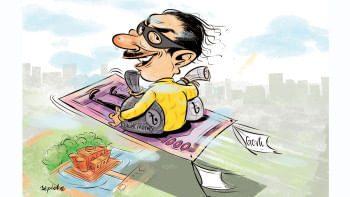


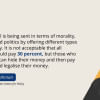
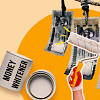
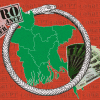
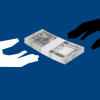


Comments